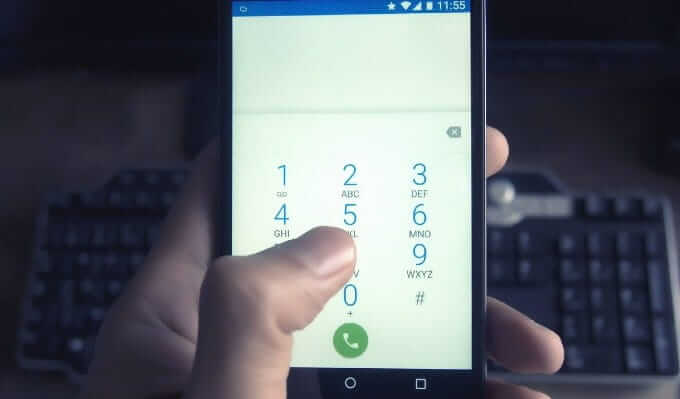Here’s why: sitting at the top of the list is to find out if the person you’re talking to or texting with is really who they say they are. Often, people receive unsolicited phone calls or emails asking specific questions that require immediate answers. Sadly, many people respond without verifying who they’re communicating with. This opens the door to the Internet– and a tactic is known as phishing.
Phishing: A Growing Problem
Phishing is a billion-dollar cybercrime that allows cybercriminals to send an email or text that links to a genuine-looking website, known as a “spoof” website, that tricks recipients into thinking it’s a legitimate site. It may be a bank, credit card or shopping site, asking for some type of personal or financial information. They convince you your account must be “updated” or it will be closed. The minute the recipient clicks on the link, or enters requested information, their data and privacy are compromised. It’s a massively growing problem, with no signs of letting up anytime soon. Last year, about 156 million phishing emails were sent out each day, so even if only a small percentage of recipients respond, the cybercrooks have a huge payday. While you can’t change the fact that phishing emails will be sent, what can be done is change the way people respond to them. One of the top ways is to verify their email address or phone number, so you know if it’s legitimate. That’s where phone lookup services come into play. Nuwber is an online tool that will provide a person’s true identity from a phone number or email address. And Nuwber can provide names and email addresses as well. In fact, Nuwber can even provide validation of info about a person’s neighbors, people on social media, and more. Once you have that information, you can determine if someone is trying to scam you through phishing.
Verifying Someone’s Identity
How many times each day do you receive an unsolicited phone call or email from someone who is asking you to reply? If their number or email address doesn’t look familiar to you, it’s a good idea to verify their true identity. By verifying whom you’re communicating with, you’ll know whether or not to respond, saving you time and trouble. Verifying identity is particularly important if you’re using dating apps or matchup websites because you want to be sure the person you may meet in person is really the person who they say they are. If it turns out you’re being scammed in one form or another, you can not only not reply, you can block their number on your smartphone as well.
Finding your Long-Lost Relatives
The Internet has opened up many doors for people to find their relatives, along with information on where they were born, family trees, and many other aspects of their lives. Ancestry.com is one of the largest sites to look up family history, but if all you have is a phone number a reverses phone lookup can provide the missing details as to where your relative is living now. Imagine their surprise when you call. Or, if you’ve never met that particular relative before, you’ll have their address and other information needed to be able to contact them ahead of time. If you’re traveling, you may find they are living in a city you’ll be visiting, so a reunion can be planned.
Reconnecting with Old Friends
It could be that you were invited to your 25th high school reunion, or you recently heard about an old college friend. Now you’d like to reconnect with people from your past. Maybe all you have is a phone number and would like to know where they’re living now. A reverse phone lookup service is the answer! You’ll be able to find out their address, city, and additional information with a few clicks of a computer mouse. The best part of this technology is how easy it is to use. All it takes is the right tool and you’ll be able to reconnect with just about anyone from your past. It’s easy to surprise someone – if you have their phone number. You can get their address and send out holiday cards, invitations to live events, or just a note saying, “hi.”
Social Media Solutions
You can also tap into the powerful search engines available from sites like Google, Facebook, LinkedIn, and others. They all have some type of reverse phone lookup services, but often it’s limited. For example, Google’s reverse lookup isn’t able to offer information related to a mobile phone number or a personal household phone number. And Facebook is limited to those who have posted their phone number on Facebook at one point or another. There are also people search sites, like Whitepages. They provide phone numbers from phone directories from around the country, But they can get expensive when looking for cellphone numbers as it requires a large amount of computer processing time, which they charge for.
Summary
The good news is that there is technology available to handle all types of help when looking to validate information about people who are trying to communicate with you. It helps put an end to spamming and phishing because you can get a person’s true identity with the click of a mouse. Reverse phone lookup technology goes a lot further, too. It helps you locate a long-lost relative, help find a former friend, colleague, or high school sweetheart. While there are social media searches available from Facebook, Google, and others, remember that unlike online tools, there will be limitations on how much information they can provide.
Δ






